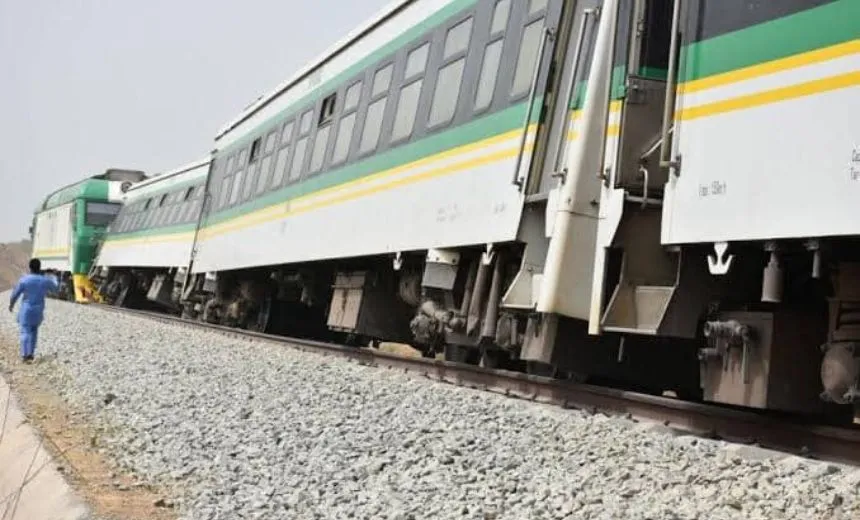The Federal Government announced on Saturday that train services along the Port Harcourt to Aba route would commence operations by the end of March.
The Port Harcourt-Aba rail project is part of the broader Port Harcourt-Maiduguri railroad project initiated by the administration of former President Muhammadu Buhari.
Mr. Fidet Okhiria, the Managing Director of the Nigeria Railway Corporation, revealed this in Port Harcourt after leading a delegation to test-run the reconstructed Eastern Narrow Gauge Rail line.
He stated that workers were currently putting finishing touches on the tracks to ensure full train operations could begin within the month.
“I am impressed with what I saw today, especially being able to ride the locomotive and wagon on the tracks. Last time we visited, we could not use the train because the contractor said it was not proper to run on the train due to imbalance of the tracks,” he said.
Related News: Escalating Tuition: Nigerian Students Abroad Face Financial Strain Amid Naira Devaluation
Okhiria expressed confidence that the contractor would complete the ‘tampering’ of the railroad within two weeks, preceding the targeted three weeks for the train services to resume.
“We are pushing the contractor to make the track safe by deploying semi-automatic signalling of the machine points rather than manual operation.
Despite resource challenges, the contractors are doing their best, and our goal is to achieve this within the next two weeks,” he added.
He assured that passenger train services would commence hopefully within March and fully resume transporting people from Port Harcourt to Aba by the end of March.
Regarding transport fares, Okhiria mentioned that due to the current high cost of diesel, commuters might have to pay higher fares than before.
He explained that if the NRC could not cover 100 per cent fuel cost, it would aim to generate at least 50 per cent from passengers to sustain operations.
He also emphasized the importance of security along the rail lines and cautioned traders against conducting business on the rail lines, as the trains would no longer slow down for them to remove their goods before passing.
He noted that the trains were scheduled to run according to fixed times across all railroads in the country.
You can also read: NANS Urges Government Intervention Amid Soaring Inflation, Financial Strain on Students


